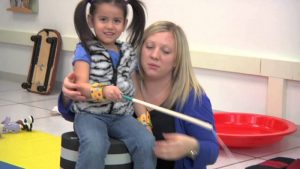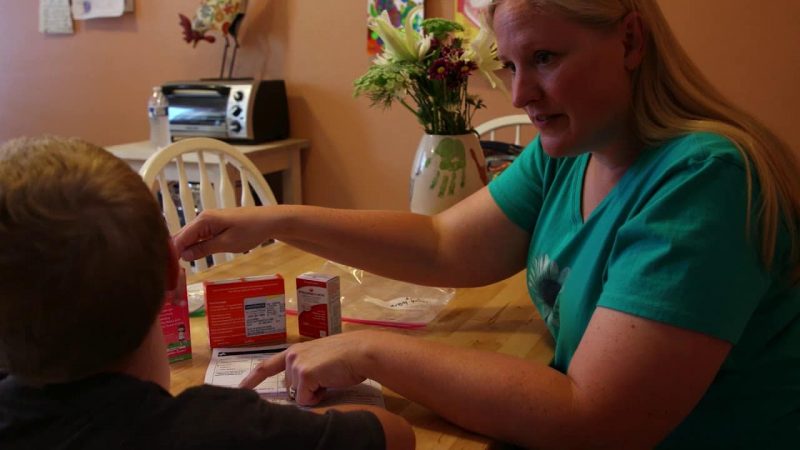If you don’t know anything about sensory processing disorder (SPD) – sometimes called sensory integration dysfunction – don’t worry, you’re not alone. Basically, people with sensory processing disorder are not able to accurately interpret sensory input such as taste, sound, touch, smell and sight. It can affect people in one sense or a multitude of senses and it can vary greatly in severity. (For example: my husband is sensitive to strong odors and cold temperatures, but my son has aversions and cravings across the board.)

SPD is a neurological disorder that can occur on its own or in conjunction with other disorders like Autism and ADHD. If you think your child might have SPD, or you’re simply looking for more information, I strongly recommend the book The Out of Sync Child.
What it looks like for my son
Contents
Aversion to being touched
He has aversions and cravings with tactile input, but mostly he is a sensory seeker. Put simply, he has to touch everything and is always on the move. He is rough and tumble in play, has a difficult time sitting still and has very little impulse control. He craves big hugs and likes to snuggle right up to me, often climbing on top of me. He is most at ease when he is petting my arm. He hates extreme temperatures and prefers lukewarm or tepid conditions. This might sound typical for a normal little boy. The difference is that it’s difficult or near impossible to redirect him because he can’t control the urge to seek input.
When he is particularly off or “out of sync” it is not uncommon for him to run from one side of the room to the other slamming off the wall and the couch. This brings new meaning to the term “bouncing off the walls.” He also often craves oral input – he sucks his thumb, chews on his clothes and has been known to lick the rainwater off my car (ick!)
While he craves this input, other feelings, such as picking strawberries in a wet patch, are too much for him. He loves playing in the sandbox, but the texture of the sand must be just right. Sometimes he’ll play with shaving cream and finger paints…sometimes not.
Sensitive to Sound
He is very sensitive to sound, but thanks to preschool, he is much more tolerant of people singing. Loud noises, such as the ring of a gong or an automatic hand dryer can still cause intense stress and he can get very irritated when his little brother screams.
Light Sensitivity
Sunlight can sometimes bother him, but he is reluctant to wear sunglasses or a hat.
Proprioception
His proprioceptive awareness is off, which often causes him to be like a bull in a china closet. He’s clumsy and bumps into things all the time. This can be tricky because he is so sensitive to injury and a minor fall can catapult him into a major meltdown.
Motor Planning Issues
My son has motor planning issues that directly affect his speech as well as delays in both fine and gross motor and reduced muscle strength….making normal daily activities just a little more difficult.
The challenges we face
People don’t believe me
SPD is not a chronic state of being. We can go weeks or even months without issue and like many people with SPD, my son is able to hold it together when he’s in school or with other caretakers. It’s only when he’s at home that he really lets loose.
It’s overwhelming and exhausting
We deal with a lot of tantrums, whining and meltdowns in a addition to anxiety and reluctance to do things that are difficult. I want to challenge him and comfort him at the same time and I don’t know what to do. He needs so much that it’s difficult, if not impossible, to do it all….and I often lack the patience he needs from me. Sometimes I don’t even have the energy to research all his options or even put them into place, because one more therapy or special activity means one more thing on my plate. I feel bad that I’m not able to give him everything he needs.
I worry about him
I worry he’ll get hurt and I worry what the future holds for him. I recently read an article from an adult’s perspective on what it feels like to have SPD. It made me sad to know this is what my son deals with.
I feel self conscience
when we’re in public because when he’s “out of sync” I have little control over him and while it may seem like I’m loosing patience over small things, he’s actually been pushing me all day….or all week.
The financial stress is daunting
We spend so much on him and there’s never enough money for everything he needs.
The upside
It’s hard for me to share all of this because it really doesn’t give a full picture of what my son is like. I really want people to know that as much stress as he brings to my life, there’s even more joy. I want you to know that with all his quirks, there is another side to this beautiful little boy that makes people adore him. He is sensitive, loving and compassionate. He is quick to share and is the first person to offer a hug or a pat on the back when he sees someone crying. He is so funny and makes me laugh on a daily basis. He is often described as being excited to be alive because he loves life and can find joy in just about anything. You always know when he’s arrived because he’ll burst through the door with a smile the lights up the room. He is extremely personable, always has a story and has never met a stranger. He’s inquisitive, smart and loves to learn. He gives the best hugs and is my number one snuggle buddy. He is the best thing to ever happened to me.


